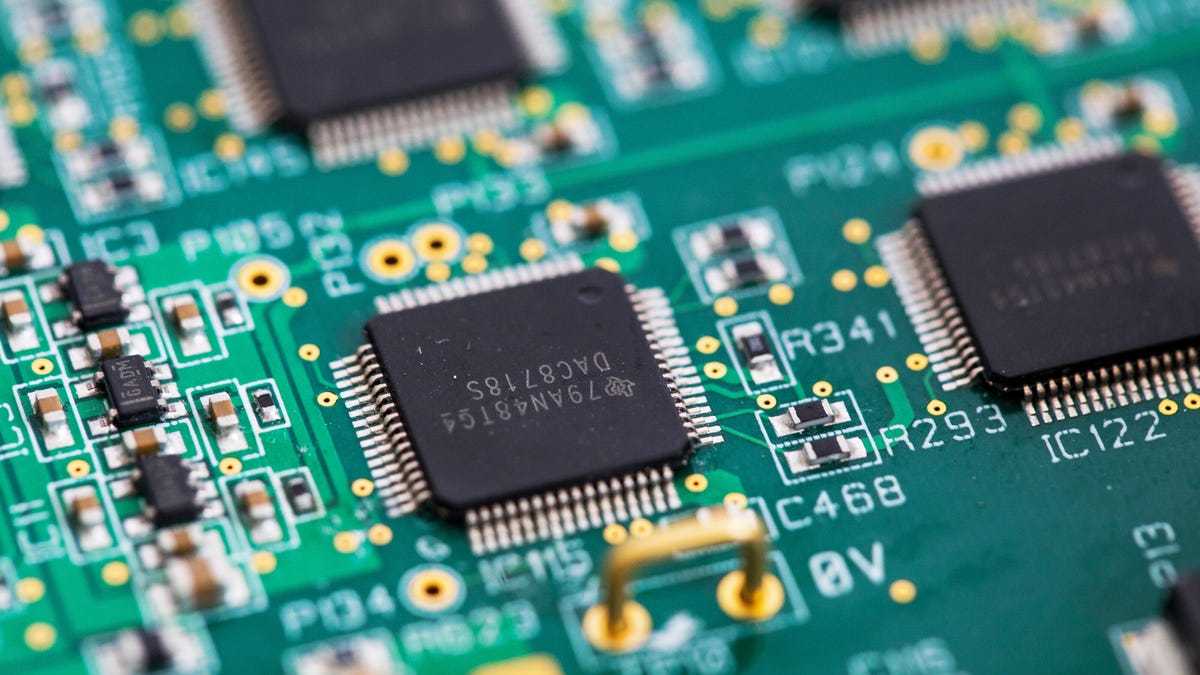Semiconductor revenue set to grow despite ongoing chip shortage, analysts predict
Worldwide semiconductor revenue grew to $464 billion in 2020 and should continue to rise in 2021, even as supply constraints continue, says IDC.

The market for semiconductors expanded in 2020, market analysts at International Data Corporation report, and revenues are expected to rise again in 2021, in spite of an ongoing global chip shortage.
Worldwide, semiconductor revenue rose 10.8% to $464 billion in 2020, IDC reports. Even factoring in persistent kinks in the supply chain, the market is expected to rise another 12.5% this year, with revenue projected to hit $522 billion. That's welcome news for industry leaders weary of the ongoing impact of the chip supply shortage.
Read more: From PS5 to Ford F-150: How a global chip shortage is 'impacting everything'
With Ford, General Motors, Toyota and other automakers unable to obtain certain chips, they're cutting production of vehicles including the Ford F-150, while there are also shortages of chips for Sony's PlayStation 5 and Microsoft's Xbox Series X. Qualcomm has also been unable to get enough processors to meet the demands of phone makers.
"Much like a traffic jam and the ripple effect, a disruption on the semiconductor supply chain operating close to capacity will impact across the supply chain," IDC's report reads, noting that investments in capacity should pay off with improved market resiliency within a few years. "Looking forward to 2021, IDC sees continued strong growth in semiconductor sales worldwide as adoption of cloud technologies and demand for data and services remain unchanged."
The strongest segment of the semiconductor market in 2020 was computing systems, which saw total revenues of $160 billion in 2020, a 17.3% increase from 2019, according to IDC. That growth should continue at a slower pace in 2021, analysts say, with revenue projected to grow 7.7% by the end of the year, with another $173 billion in revenue.
As for mobile, the market proved resilient in 2020, notching higher revenue from fewer devices sold.
"Mobile phone shipments fell by more than ten percent in 2020, but mobile phone semiconductor revenues grew by 9.1% due to a shift to higher priced 5G semiconductors, more memory per phone, sensors, and RF support for more spectrum bands," said Phil Solis, IDC research director for connectivity and smartphone semiconductors. 2021 should prove to be a big year for the category, Solis notes, with projected growth of 23.3% driven by semiconductors for 5G phones , which are expected to account for nearly two-thirds of projected revenue for the year.
Elsewhere, the automotive sector rebounded at the end of last year, IDC notes, though ongoing supply chain shortages could impact growth projections for 2021, which are currently set at 13.6%. The consumer sector rebounded as well, hitting $60 billion in revenue in 2020, up 7.7% over 2019.
" Apple , AMD and Intel showed exceptional growth as consumers upgraded their digital spaces at home," said Rudy Torrijos, IDC research manager, consumer semiconductors. "New gaming consoles from Microsoft and Sony, continued strong sales of wearables from Apple, and the rise in smart home networks managed by Amazon Alexa and Google Assistant will accelerate growth in 2021 to 8.9% year over year."
Overall, IDC's big-picture view of the semiconductor market is a bullish one.
"The markets remain narrowly focused on shortages across specific sectors of the supply chain," said Mario Morales, IDC program vice president, semiconductors, "but what is more important to emphasize is how critical semiconductors are to every major system category and content growth that remains unabated."
The White House met with CEOs from Intel, Dell , Samsung , Ford , HP , AT&T , Alphabet, General Motors and other companieslast month to discuss the global computer chip shortage. It followed President Joe Biden signing an executive order to improve the semiconductor chip supply chain in February, after pointing out that semiconductor chips power everything from cars to phones to medical devices.

